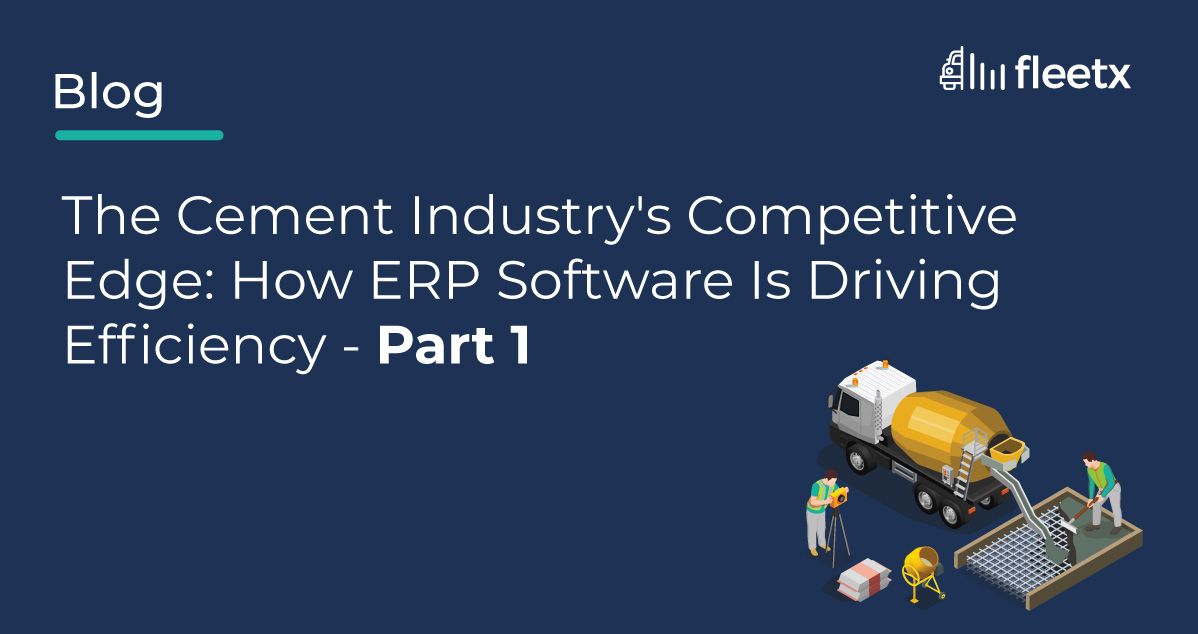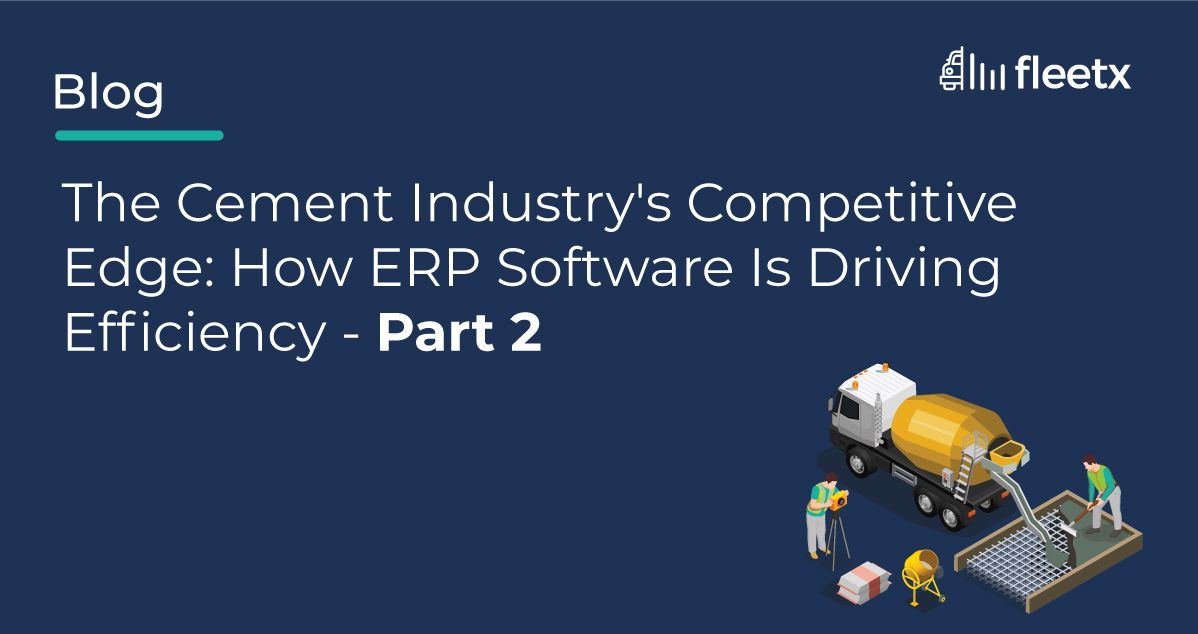
The cement industry in India a highly competitive market, with a large number of operating in the space. While the industry is dominated by a few large and established companies, there are also smaller players that compete alongside on price, quality, innovation, and brand reputation. To do so, these companies must be able to operate at maximum efficiency and minimize costs while delivering high-quality products and services to stay relevant. In this two-part series, we will explore how to gain (and retain) a competitive edge in this industry, with the help of an innovative solution Enterprise Resourse Planning (ERP).
Cement is a commodity product, and price is often the key decision marker in the market. Companies generally compete on price by offering discounts, promotions, and other incentives to customers. However, quality is also an important factor, and companies that can offer high-quality products at competitive prices have an advantage in the market.
What is an ERP system?
For a cement company looking to achieve these goals, one powerful solution is the implementation of an ERP software. A tms ERP system is a software platform that integrates all of a company's business processes and data into a single, centralized system. It can help companies manage everything from supply chain management and production planning to order fulfillment and environmental performance. By streamlining processes and providing real-time data and analytics, an ERP system can help companies improve their decision-making, increase productivity, and reduce costs.
How will it help?
In an industry where production volumes are high and margins are tight, a tms ERP system can be a valuable tool for enhancing competitive edge and driving efficiency. Let's take a closer look at some of the ways in which an ERP system can benefit a cement company in India.
- Supply chain management is a critical component of any manufacturing operation, and this is particularly true in the cement industry. Raw materials such as limestone, clay, and gypsum must be sourced from various locations and transported to the cement plant. An ERP logistics and transport management system can help manage the complex processes involved by providing real-time visibility into inventory levels, production schedules, and transportation schedules. This can help optimize transportation routes, reduce lead times, and minimize inventory holding costs.
- Inventory management is central to any cement company's operations, as raw materials must be carefully managed to ensure consistent quality and quantity of output. With an ERP system, inventory levels can be tracked in real-time, ensuring that materials are always available when needed, while minimizing waste and reducing the risk of stockouts. This not only improves production efficiency but also helps to reduce costs, as the company can optimize its inventory levels and avoid excess or obsolete inventory.
- Production planning is another area where a tms ERP system can provide significant benefits. By integrating all aspects of the production process, from raw material procurement to finished product delivery, an ERP system can help ensure that production runs smoothly and efficiently. This includes scheduling production runs, managing labor and equipment resources, and tracking production costs. By automating these processes, the company can minimize downtime and improve productivity, while also reducing waste and minimizing the risk of errors.
- Improved Financial management using an ERP system can provide significant benefits to a cement company; by integrating financial data with other business processes, a tms ERP system can provide real-time visibility into financial performance and enable better decision-making. This includes everything from invoicing and accounts payable to budgeting and financial reporting. By automating these processes, the company can free up valuable resources and focus on core business activities. This can help improve profitability, reduce costs, and optimize cash flow.
To conclude this first piece; we can say with certainty that a tms ERP system will provide a competitive edge to a cement company in India and make better use of available resources. By integrating all business processes and functions into a single system, the company can streamline operations, reduce costs, and improve customer satisfaction, while also minimizing the risk of errors and delays.
These are just a few ways in which a cement company can benefit using a transporter erp system; the following article will provide data on how use of this software has benefitted companies globally, and complete the list of benefits which include environmental compliance, quality control, etc. Companies that are able to differentiate themselves and offer high-quality, innovative products at competitive prices will have an advantage in the market, and fleetx is here to make that happen.






